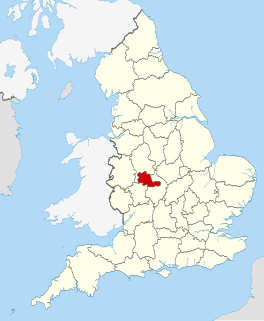
The history of public transport authorities in London details the various organisations that have been responsible for the public transport network in and around London, England from 1933 until 2000 and have used the London Transport brand. Their responsibilities have encompassed the buses, coaches, trams and the London Underground. The period began with the creation of the London Passenger Transport Board, which covered the County of London and adjacent counties within a 30-mile (48-km) radius. This area later came under the control of the London Transport Executive and then the London Transport Board. The area of responsibility was reduced to that of the Greater London administrative area in 1970 when the Greater London Council, and then London Regional Transport took over responsibility. Since 2000, the Greater London Authority has been the transport authority and the executive agency has been called Transport for London; ending the 67-year use of the London Transport name.

Transport for London (TfL) is a local government body responsible for the transport system in Greater London, England.

The subdivisions of England constitute a hierarchy of administrative divisions and non-administrative ceremonial areas.

The Learning and Skills Council (LSC) was a non-departmental public body jointly sponsored by the Department for Business, Innovation and Skills (BIS) and the Department for Children, Schools and Families (DCSF) in England. It closed on 31 March 2010 and was replaced by the Skills Funding Agency and the Young People's Learning Agency.
The following list outlines the structure of the federal government of Canada.

Transport for West Midlands (TfWM) is the public body responsible for co-ordinating transport services in the West Midlands metropolitan county in England. It is an executive body of the West Midlands Combined Authority (WMCA), with bus franchising and highway management powers similar to Transport for London. TfWM's policies and strategy are set by the Transport Delivery Committee of the WMCA.

The government of Singapore consists of several departments, known as ministries and statutory boards in Singapore. Ministries are led by a member of the cabinet and deal with state matters that require direct political oversight. The member of the cabinet heading the ministry is known as the minister, who is supported by a junior minister known as the minister of state in Singapore. The administrative management of the ministry is led by a senior civil servant known as a permanent secretary.
The National Grid for Learning (NGfL) was a UK government-funded gateway to educational resources on the Internet. It featured many individually selected links to resources and materials deemed to be of high quality. The NGfL was specifically set up to support English schools; separate 'grids' were set up for schools in Northern Ireland, Scotland and Wales.

The Local Government Association (LGA) is the national membership body for local authorities. Its core membership is made up of 339 English councils and the 22 Welsh councils through the Welsh Local Government Association.

The London Grid for Learning (LGfL) provides a filtered broadband connection, network services, a common learning platform, online content and support communities for all schools across London. It operates as a consortium of 33 local education authorities (LEAs). It was launched in June 2000, and provides broadband connectivity to most of the 2,600 state schools in London.

An executive agency is a part of a government department that is treated as managerially and budgetarily separate, to carry out some part of the executive functions of the United Kingdom government, Scottish Government, Welsh Government or Northern Ireland Executive. Executive agencies are "machinery of government" devices distinct both from non-ministerial government departments and non-departmental public bodies, each of which enjoy a real legal and constitutional separation from ministerial control. The model was also applied in several other countries.

The Ministries of Jamaica are created at the discretion of the Prime Minister of Jamaica it carry out the functions of Government. As of 2016 the current Prime Minister is The Most Honorable Andrew Michael Holness, ON, MP. The agencies of Jamaica are created by both Parliamentary law and assigned to ministers to oversee. The governance structure consists of ministries with portfolios that have agencies that carry out its functions.

The Àrea Metropolitana de Barcelona is a public body operating on the principle of metropolitan authority. It is composed of representatives of Barcelona and 36 adjacent municipalities accounting for a population of 3,239,337 within an area of 636 km2. Its jurisdiction constitutes the main core of the unofficial Barcelona metropolitan area, with a population over 5 million.

The CTI Education Group (CTI) is a registered, private higher education institution in South Africa. Full-time and part-time students can study within the fields of Information Technology, Psychology & Counselling, Creative Arts & Graphic Design, Commerce and Law on campuses spread throughout South Africa.
The Government agencies in Bangladesh are state controlled organizations that act independently to carry out the policies of the Government of Bangladesh. The Government Ministries are relatively small and merely policy-making organizations, allowed to control agencies by policy decisions. Some of the work of the government is carried out through state enterprises or limited companies.










